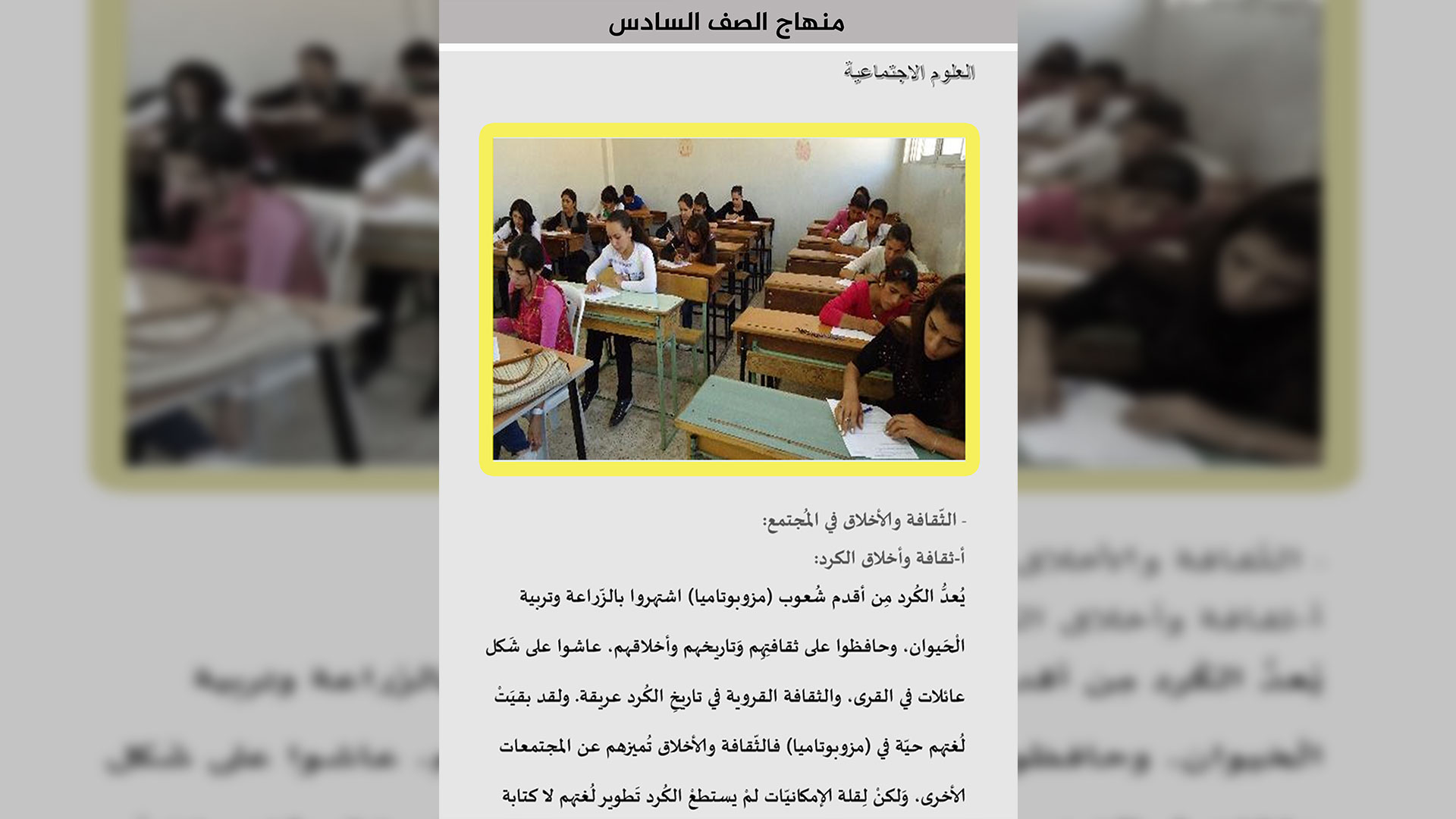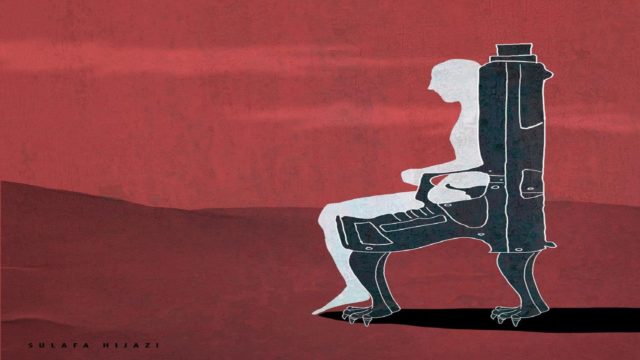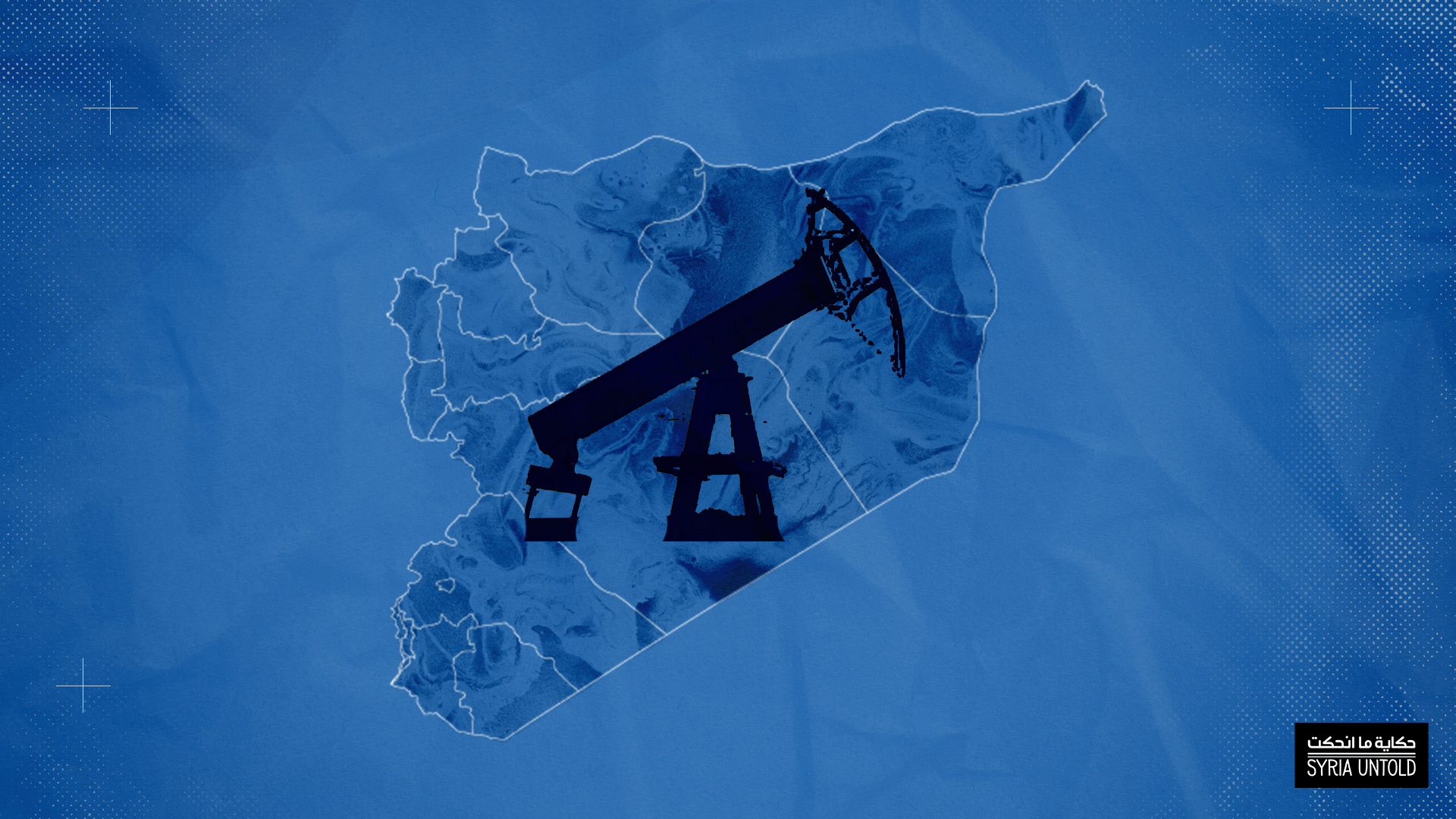“This article was produced within the project «Empowering the Next Generation of Syrian Women Journalists» in partnership between the «Syrian Female Journalists Network» and «UntoldStories». This article was produced under the supervision of journalist Alaa Mohammed.”
"Alas, education is not meant for the likes of us," says 15-year-old Maram, who has not been able to pursue her education for the past two years. With every approach to the start of a new school year, Maram watches her friends prepare themselves to start school, with wide smiles on their faces, while grief slowly eats up her heart. Her mother forced her to quit school and dedicate her time to the Olive harvest season. No matter what she said, all of her attempts to convince her mother to reconsider have failed. Continuing her education has become a lost dream. Instead of buying books and notebooks, she now prepares her harvesting basket, hat, and gloves to get ready for olive picking. Afterward, she will gather whatever remains in the lands.
One of many
Before the displacement to the northwest camps, most working young girls used to work willingly in their family and relatives' lands. However, after the displacement, parents had to force their daughters to work in the farmlands in their areas to raise more income for the family, especially after the displacement and the increased burden of responsibilities. These sorts of jobs are available during the winter season, but they are prevalent in the summer, encompassing tasks such as harvesting, clearing land of harmful weeds, picking vegetables, and more.
There are no accurate statistics on child labor in northwest Syria due to security reasons in the region. Nevertheless, in our focused research on this matter, we came across female and male workers in four farmlands —one in Qah, two in Afrin in the rural outskirts of Aleppo, and another in Deir Hassan, north of Idlib. We observed that the majority of the female workers were under the age of 18.
How Women Are Depicted In The Syrian Curricula
22 August 2019
Um Hussein, 38, is a displaced woman from southern rural Idlib, residing in one of the camps in Deir Hassan. She told Syria Untold that she works with her five children during the olive picking season. She distributes tasks among them according to their age and ability to work. Nevertheless, a sense of guilt lingers as she sees them bearing the challenges of labor at a very young age with tender bodies.
The shadow of harassment haunts young working girls
Aisha is a 16-years-old girl, a worker and resident of one of the Qah camps in the northern countryside of Idlib, and was harassed at her workplace. However, she refused to tell her family what happened to her. “How can I be sure that if I complain to my parents about being harassed, they won't argue with my employer, or he won't accuse me of lying, or blame me for the incident because of how I dress or how I interact with him?”.
During our meetings with several female workers in the Idlib countryside, it became clear that harassment is a prominent concern for young girls during work, especially because of their lack of self-defense knowledge and the hesitancy to confide in their families, fearing being disbelieved or blamed for the harassment, as it happened to other girls before.
The employer of 13-year-old Sondos Jaber, living in one of the Deir Hassan camps, tried to harass her, saying inappropriate things and following her from one place to another. Sondos says that she was feeling upset, but “I did not dare to respond to him, and I was afraid that everyone would think I was lying and believe him, or he would claim that he was just joking. Luckily, I did not work with him for long, and I started working with my mother and brothers in another place, and no stranger to the family was around anymore.”
Female workers face criticism from the surrounding environment because of this type of profession, such as harvesting the agricultural seasons, cultivating the land, picking roses from the fields, and other professions. One of the young women, Khadija Abdel Wahed, 14, residing in Mashhad Ruhin, north of Idlib, tells Syria Untold: "Some people cast a negative light on us because of our association with these farmlands; they sometimes accuse us of theft or saying obscene words. The issue lies in their tendency to generalize, creating a social stigma that limits the marriage opportunities for working girls.” Then she adds: “Not everyone is the same. Many sympathize with us, appreciate our efforts, and provide us with assistance."
Physical damage and permanent fatigue with no compensation
Israa, 17-year-old, chose to hide her real identity out of fear of her father's reaction if he discovered that she had shared her story with Syria Untold. Israa reveals that her parents separated when she was ten years old. “I stayed with my father, then he married another woman, who forced me at the age of 12 to leave school and work in the fields. Despite my tears and pleas, my father remained unmoved, and I had no choice but to start working. I spend my mornings until noon in one of the lands with the workshop. Upon my return, a new set of responsibilities awaited me, including housework, cleaning, and washing.”
Despite all this, Israa does not receive her wages from her employer. Israa says that her father takes her full wages, “and does not give me a penny. One time I took the money from the employer to buy a dress, and he scolded me severely.”
Israa expresses her fatigue and says she has no solutions other than “marriage and leaving the house.”
"Alas, education is not meant for the likes of us," says 15-year-old Maram, who has not been able to pursue her education for the past two years.
We heard several stories about employers exploiting young female workers, deducting part of their wages, in addition to the physical damage resulting from work that requires movement, effort, and travel between lands, such as picking olives, almonds, walnuts, sumac, eggplant, and other agricultural tasks. There are also other health risks due to the heat and cold weather, without receiving any medical care.
This is what happened with 14-year-old Razan, who experiences excruciating pain in her back and hands due to the rigors of harvesting, reaching a point where she cannot sleep through the night. She endures it with tears, cursing the circumstances that have compelled her to work at this age, sharing her story. “I left school four years ago after we were displaced from Kafr Zita village in the northern countryside of Hama, and we lived in a camp affiliated with the city of Qah in the northern countryside of Idlib” she explains. “My mother asked me to work with the girls of the camp in the farmlands two years ago. All agricultural work is difficult, but I hate harvesting the most because it hurts the back and hands and the dust gets into our eyes. We have to spend our time with our backs bent."
Gynecologist Dana Al-Saleh, based on her direct observations of women and girls in her clinic in the Kafr Lusin area in northern Idlib, says: "Working for long hours in the fields can lead to fatigue and stress in girls, affecting their physical structure and causing future joint and muscle pain. It also leads to changes in hormone levels, affecting the menstrual cycle due to hormonal fluctuations, thus harming the body in general. This is what many patients who visited the clinic have experienced.”
Doctor Dania points out that she came across cases of several girls who suffered from health problems due to tiring work on the lands. One case involved a 15-years-old girl who was experiencing menstrual irregularities and back pain. It became clear from her statements that she was working in the fields. Dr. Dania advised her to stop working and rest at home.
According to the doctor, stress affects hormones and their levels, and "these changes in hormone levels lead to random and irregular shedding of the uterine lining. This results in the appearance of blood spots outside the regular menstrual cycle, characterized by bleeding between periods. This means that stress and fatigue cause menstrual disturbances in girls."
Physical damage is not limited to what the doctor mentioned. In fact, other diseases can result from the cold in the winter, such as colds, flu, sore throat, etcetera and damage resulting from extreme heat during the summer, with the possibility of exposure to a snake bite, especially since it is natural for snakes to appear during summer in agricultural areas, lands and between rocks.
Psychological crises
Fatima Khoja is only 14-years-old and is one of the girls who has experienced negative psychological effects to the point where she wishes for death to be relieved of the responsibilities placed on her. “When I wake up early at the break of dawn, and leave my warm bed, to prepare myself before the work car arrives, I wish for death so that I can rest from this harsh life full of responsibilities” she says in a sad voice. “I help my father secure food, drink, and clothing for my siblings. Upon returning home, I am greeted by the tasks of cleaning, washing, and tidying up, and the moment I express any dissatisfaction, I am met with a barrage of insults from my parents. They accuse me of lacking responsibility and emphasize that I am obligated to handle all these tasks because I have grown up, or so they say."
As for the psychological aspect, clinical psychologist Baraa Al-Jumaa, who specializes in mental health in the city of Idlib, says: “Agricultural work and harvesting crops at an early age and in difficult conditions can have serious psychological and social effects on girls under the age of 18. It is noteworthy that some of these effects may include disrupting education, as engaging in early labor can lead to quitting school and denying girls the chance for further education and skill development.”
The Impact of Gun Culture on Women in Idlib
03 November 2018
There are also health impacts on female workers, according to Al-Jumaa. “Long working hours and harsh conditions may lead to health problems, such as fatigue, stress, and certain diseases. In addition to facing delays in social development, early work may affect the development of social skills and personal relationships, potentially influencing the formation of identity. Moreover, it can lead to psychological pressures arising from the responsibilities and stresses associated with work.”
Al-Juma proposes a set of solutions, such as providing high-quality, free educational opportunities for girls under the age of 18, providing systematic educational courses that allow them to resume their education, and providing psychological and social support by establishing centers that support mental and social health in affected communities.
Child labor: Deprivation of rights and a lost future
Alia Ahmed, a feminist writer, social researcher, and trainer on women’s and children’s issues, emphasizes that “child labor, regardless of sex or gender, is a form of violation of international agreements and national legislation, and this violation deprives children of living their childhood and life stages at the appropriate time and conditions. In addition to being deprived of their right to education, this results in various psychological and social impacts in general. In fact, a report by the ‘Syrian Response Coordinators Team’ revealed that the number of children dropping out of education in the northwestern regions of Syria alone reached 318,000 individuals. Meanwhile, the overall number of children dropping out of education in Syria has reached around 2.5 million, addressing a range of reasons contributing to the rising rates of dropout in the region.”
Alia adds that poverty is one of the reasons for child labor, but "child labor intensifies, and the severity of poverty escalates as the number of children dropping out of schools increases. Those who are not adequately qualified to enhance their educational levels fail to raise their income, impacting the number of educated men and women in the country.”
Alia perceives distinctions in the impact of child labor on boys and girls, highlighting that the consequences for girls are more severe and deep. "They are exposed to risks that obstruct their physical and intellectual growth, block their skill development, and increase the likelihood of them being subjected to physical and psychological violence, and sometimes even sexual violence. Girls work in unhealthy and illegal conditions, making them vulnerable to exploitation in all its forms," Alia notes that "child labor among girls is often accompanied by school dropout, frequently followed by early marriages with all its associated negative implications. The rising rate of child labor among girls further aggravates the formation of a vulnerable society, characterized by escalating poverty and ignorance, due to a large segment of its population being deprived of their rights and exposed to violations. This very segment will bear the responsibility of the families they form, and it will be their duty to raise children in a poor environment, both materially and intellectually.”
In addition, she says that finding solutions in the current Syrian context is not an easy task. However, raising societal awareness, increasing the value of education, committing to the enforcement of international agreements, and opening the door to humanitarian organizations supporting human and child rights will provide significant opportunities to reduce the level of child labor, both for boys and girls. In addition to finding alternative opportunities for agricultural workshops that depend on the nature of the region and the job vacancies therein, and the possibility of building sustainable projects that provide job opportunities and good returns that allow parents to support their families without having to force their children to work and exposing them to exploitation.
Maram aspires to enroll in one of the vocational courses held in northern Syria, to learn a better profession than agricultural work, such as hairdressing, sewing, weaving, or baking. “I will not stay like this,” she comments. “I will learn and develop my skills until I find a job that provides me with a brighter future, and I will not give up on my dream of education. I will continue to read and learn in my free time, and if any opportunity arises to resume my education, I will not hesitate, not even for a moment.”








